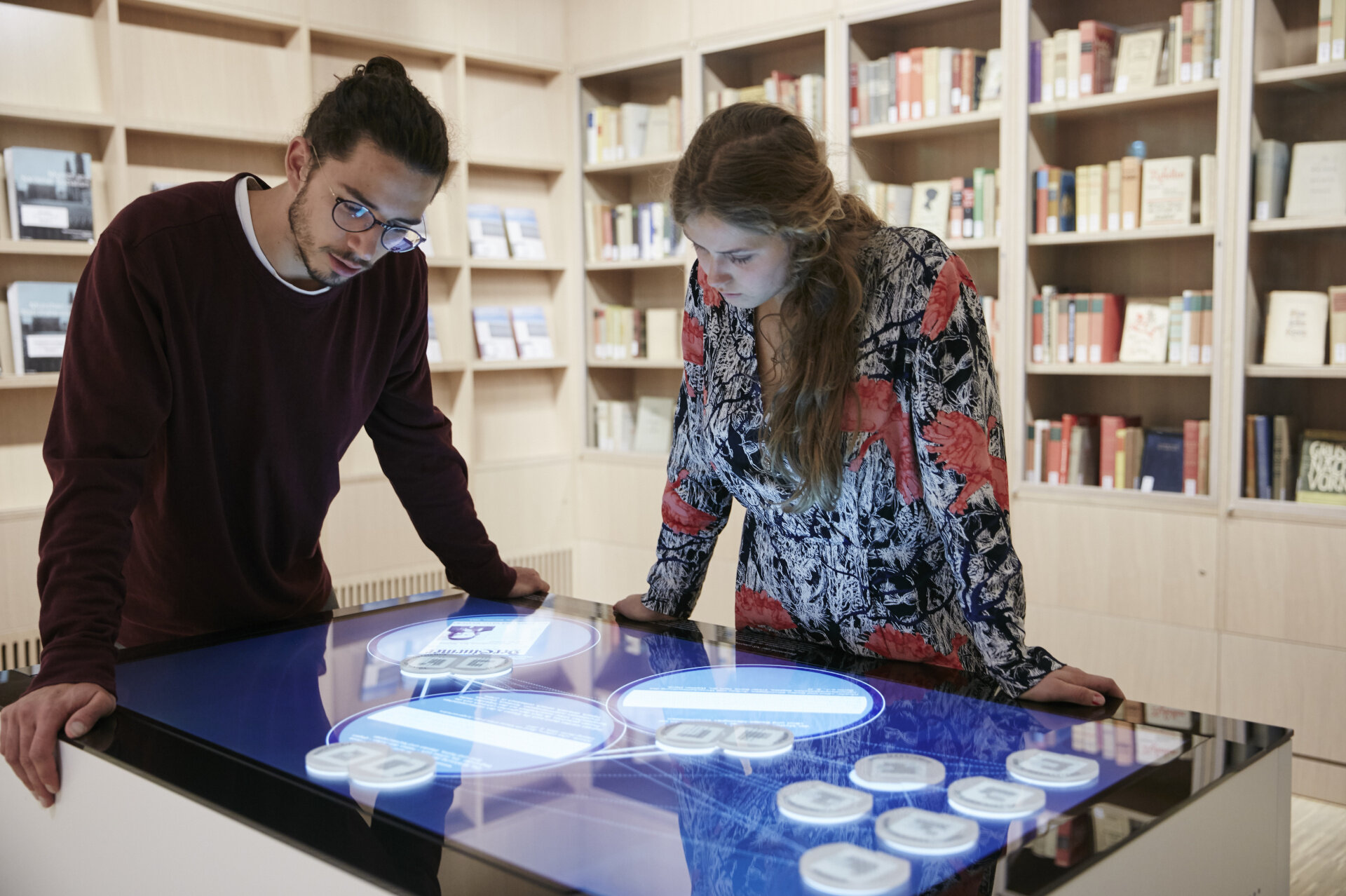The Nazi Society of Exclusion
Munich citizens in the Nazi state
The notion of a homogeneous German people (the “Volk”) was at the core of Nazi ideology. In a bid to achieve this ethnic homogeneity the Nazis decided which citizens should belong to the “people’s community” and which should be excluded, persecuted, and murdered. This ideology of inequality influenced every area of life.
The Nazi ideal of a so-called “people’s community” was based on notions of biological race. Nazi propaganda promised those who were accepted as members of the German “Volk” a social community, solidarity, comradeship, and equality. But anyone who did not conform to Nazi ideology was ostracized, persecuted, and murdered.
Political opponents were branded “enemies of the people”. The Jewish population and Sinti and Roma were excluded as “members of foreign races,” while other people were stigmatized and persecuted as “foreign to the community” on account of their origins, their failure to conform to social norms, or their sexual identity. The idea of a “people’s community” hence played a central role in the establishment of the Nazi dictatorship. In the seminar we will use selected biographies and information provided at the media tables in our Learning Center to investigate what effect these social divisions had on Munich’s population.

Workshop in the Learning Center at the Munich Documentation Center, 2017 | © NS-Dokumentationszentrum München, photo: Connolly Weber Photography
Send request
Information
Place
Munich Documentation Center
Duration
180 to 240 min
Suitable for
School classes of all types
Number of participants
Max. 15 people (larger groups will be divided)
Cost
Free of charge for school classes
Languages
German, English, French, Italian (other languages on request)

